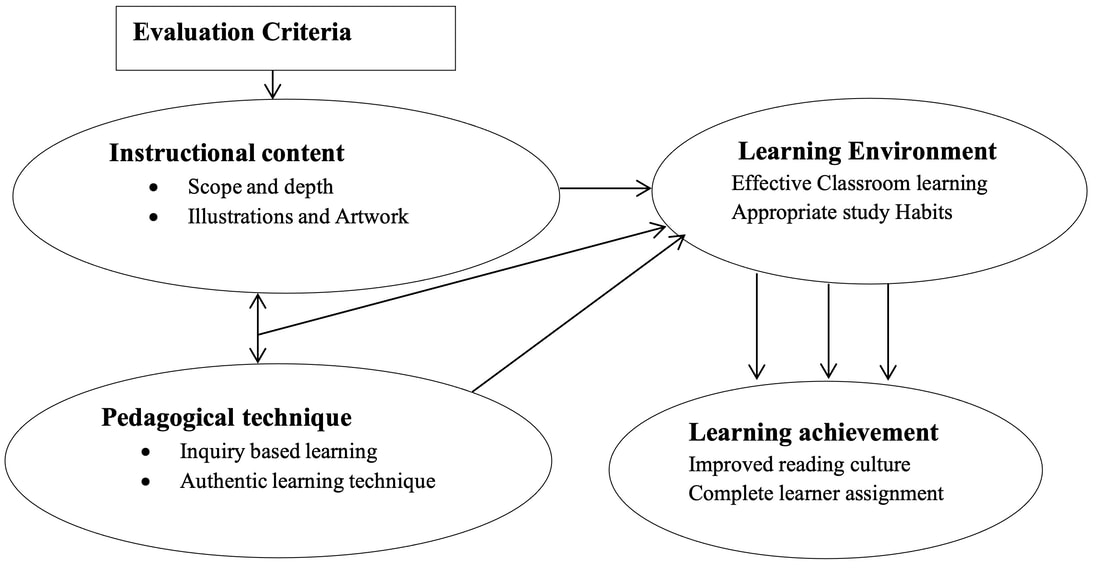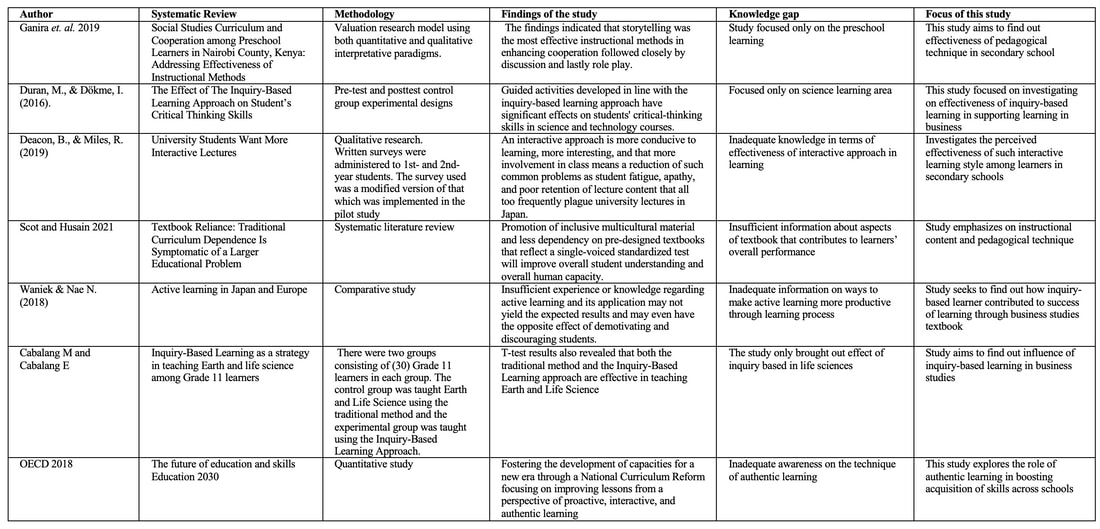- Home
- About WVN
-
WVN Issues
- Vol. 1 No. 1 (Oct. 2017) >
- Vol. 2 No. 1 (Feb. 2018) >
- Vol. 2 No. 2 (Jun. 2018) >
- Vol. 2 No. 3 (Oct. 2018) >
- Vol. 3 No. 1 (Feb. 2019) >
- Vol. 3 No. 2 (Jun. 2019) >
- Vol. 3 No. 3 (Oct. 2019) >
- Vol. 4 No. 1 (Feb. 2020) >
- Vol. 4 No. 2 (Jun. 2020) >
- Vol. 4 No. 3 (Oct. 2020) >
- Vol. 5 No. 1 (Feb. 2021) >
- Vol. 5 No. 2 (Jun. 2021) >
- Vol. 5 No. 3 (Oct. 2021) >
- Vol. 6 No. 1 (Feb. 2022) >
- Vol. 6 No. 2 (Jun. 2022) >
- Vol. 6 No. 3 (Oct. 2022) >
- Vol. 7 No. 1 (Feb. 2023) >
- Vol. 7 No. 2 (Jun. 2023) >
- Vol. 7 No. 3 (Oct. 2023) >
- Vol. 8 No. 1 (Feb. 2024) >
-
Events
- CIES 2023, Feb. 14-22, Washington D.C., USA
- ICES 4th National Conference, Tel Aviv University, Israel, 20 June 2021
- 2022 Virtual Conference of CESHK, 18-19 March 2022
- ISCEST Nigeria 7th Annual International Conference, 30 Nov.-3 Dec. 2020
- 3rd WCCES Symposium (Virtually through Zoom) 25-27 Nov. 2020
- CESA 12th Biennial Conference, Kathmandu, Nepal, 26-28 Sept. 2020
- CESI 10th International Conference, New Delhi, India, 9-11 Dec. 2019
- SOMEC Forum, Mexico City, 13 Nov. 2018
- WCCES Symposium, Geneva, 14-15 Jan. 2019
- 54th EC Meeting, Geneva, Switzerland, 14 Jan. 2019
- XVII World Congress of Comparative Education Societies, Cancún, Mexico, 20-24 May 2019
- ISCEST Nigeria 5th Annual Conference, 3-6 Dec. 2018
- CESI 9th International Conference, Vadodara, India, 14-16 Dec. 2018
- ICES 3rd National Conference, Ben-Gurion University, Israel, 17 Jan. 2019
- WCCES Retreat & EC Meeting, Johannesburg, 20-21 June 2018
- WCCES Symposium, Johannesburg, 21-22 June 2018
- 5th IOCES International Conference, 21-22 June 2018
- International Research Symposium, Sonepat, India, 11-12 Dec. 2017
- WCCES Info Session & Launch of Online Course on Practicing Nonviolence at CIES, 29 March 2018
- WCCES Leadership Meeting at CIES, 28 March 2018
- 52nd EC Meeting of WCCES, France, 10-11 Oct. 2017
- UIA Round Table Asia Pacific, Chiang Mai, Thailand, 21-22 Sept. 2017
- Online Courses
|
Abstract Knowledge and skills are enhanced if instructional content support lively learning experiences for increased learner achievement. Study presents literature review of related literature on textbook evaluation criteria in secondary education in Kenya and Japan. Assessing quality of instructional content has enhanced effective teaching and learning in secondary schools in Kenya promoting self-efficacy among learners. However in instances where techniques of presenting instructional content do not accommodate learner centered approach learning outcome is propelled resulting in success in learning. Research question for this study is focused on relationship between evaluation criteria in Kenya and Japanese system of education. The study dimensions include teaching methods and instructional content. The purpose of this desk review is to establish suitability of evaluation criteria in promoting learning achievement in Kenya and Japanese system of education. Design adopted for this study is systematic literature review in the area of pedagogy, instructional content and evaluation Criteria. The articles reviewed are those published in the last five years from global view point and African perspective. The study concluded that both Kenya and Japan offer business studies at secondary level and that both of the countries encourage learner centered pedagogical technique to enhance academic outcome. The study recommends that Kenya improves on content presentation to integrate digital textbooks to enhance online learning for lifelong learning experience. Key words; Instructional content, Pedagogy, evaluation criteria, Business studies, Textbook 1.0 Background to the study Instructional methods adopted for teaching and learning of business studies when properly constituted accelerates learning and knowledge retention among learners across school system in Kenya. Apprehension of ideas in business studies is likely to be empowered through differentiating teaching approaches propagating sustained edification for better examination results (Ganira, Odundo, Gatumu & Muasya, 2019). Varying methods of delivering instruction in business studies endows learner with exciting and lively incidents resulting in successful construction of knowledge even in the absence of the teacher. Nevertheless, where methods do not match individual preferences development of skill is blocked degrading learner’s academic outcome in business studies. As opinionated by Ito and Kawazoe (2015) textbook that advocates for methods such as discussion supports learner’s interest keeping the novice captivated through the learning process. Incorporation of role play in concepts delivery leads to enthusiasm and concerted effort in understanding of instructional content paving way for new discoveries. (Wariek & Nae 2017). Role playing in business studies class captivates the learner in cementing concepts learnt consequently resulting in achievement of specific objectives. Whenever learning material is presented to the learner bit by bit learner is able to transcend from known to unknown thereby leading to gradual development of concept in specific learning outcome. In the views of Bekele, Odundo, Mwangi and Ganira (2022) business studies textbook that present information reasonably may be a source of inspiration for learners’ construction of knowledge. In addition, business studies textbook whose presentation style enhances stepwise development of information encourages learning resulting in increase in learning achievement promoting mastery of content. As noted by Mori (2018), effective and successful learning is realized if active learning approach is used through preparing carefully learning objectives in specific learning outcome. This is premised on the view that chronological arrangement of content enables learner to move from already learnt experiences to new knowledge being introduced for improved learning experiences. If new concepts are properly linked to learner’s prior experiences concepts can easily be mastered. However, business studies textbook that disregards logical presentation blocks learning discouraging reading culture among learners. Matsushita (2018) denotes that instructional content that does not augur well with learner’s cognitive characteristics is likely to hinder skill development and knowledge acquisition across schools. As put forward by Demir and Erdogan (2017) success in academics is inspired by properly structured instructional content in business studies textbook. Proper form of speech is a requisite element for articulation of sounds, empowering communication skills ushering in self-driven learning for higher grades. In the view of Waniek and Nae (2017) well planned material sequencing meets cognitive characteristics of learner hence facilitating learning achievement through textbook. Individual differences in class are likely to be catered for by business studies textbook that adopts material presentation which is simple and precise. Simple and precise presentation develops learner thinking ability there by facilitating learning through business studies textbook without necessarily having to consult a more knowledgeable peer or adult. According to Bekele, Odundo, Mwangi and Ganira (2021) content presentation reflects learner interest in instances where business studies textbook facilitates learner move from known to unknown ideologies. When new concepts are linked to learnt experience search of knowledge is enhanced supporting increase in learner mean score in business studies. However in instances where presentation does not provide a link to what learner already knows learning is discouraged. 1.1 Instructional content and learning achievement Interaction between the learner and learning resources encourages acquisition of skills in specific task for accelerated learning achievement. In the views of Bekele, Odundo, Mwangi and Ganira (2022) business studies textbook that present information in step wise manner is a source of motivation for learners’ construction of knowledge. Business studies textbook whose presentation style enhances stepwise development of information encourages learning resulting in increase in learning achievement promoting mastery of content. A study by Mori (2018) revealed that effective and successful learning is realized if active learning approach is used through preparing carefully learning objectives in specific learning outcome. Chronological arrangement of content enables learner to move from already learnt experiences to new knowledge being introduced. If new concepts are properly linked to learner’s prior experiences concepts can easily be mastered. However, business studies textbook that disregards logical presentation blocks learning discourages reading culture among learners. Matsushita (2018) denotes that instructional content that does not augur well with learner’s cognitive characteristics is likely to hinder skill development and knowledge acquisition across schools. 1.2 Pedagogical technique and learning achievement Instructional methods adopted for teaching and learning of business studies through textbook, when properly constituted accelerates learning and knowledge retention among learners across school system in Kenya. Apprehension of concepts in business studies is likely to be empowered through differentiating teaching approaches propagating sustained edification for better examination results (Ganira et al., 2019). Varying methods of delivering instruction in business studies furnishes learner with exciting and lively episodes resulting in successful construction of knowledge even in absence of subject teacher. Nevertheless, where methods do not match individual preferences in class skill development is blocked degrading learner’s academic outcome in business studies. Bekele, Odundo, Mwangi and Ganira (2021) opined that appropriate instructional content is able to keep learners mentally and physically, active in their learning through activities that involves them in gathering information, thinking and problem solving 1.3 Purpose and Objectives of the study The purpose of this study is to assess suitability of instructional content and pedagogical technique in promoting learning achievement in secondary schools in Kenya and japan. The specific objective of this study is to assess influence of instructional content and pedagogical technique on learning achievement in Kenya and Japan. 1.4 Research Question
2.0 Theoretical framework Zone of proximal development by Lev Vygotsky (1978) anchors this study in that it supports the fact that learning can be achieved by learner through immediate support offered by textbook. Zone of proximal development refers to distance between what the learner can do without help and what he can do with help in order to achieve the desired learning objectives. The ZPD comprises of series of activities too challenging for the child to achieve on his own, however learning is likely to be achieved through assistance of business studies textbook. Simple level according to Vygotsky involves activities that learner can effectively manipulate on their own without support of teacher or more knowledgeable adult. On the other hand, in zone of proximal development learning is realized with support provided by textbook, teacher or peers and cannot construct knowledge without scaffolding tool. Additionally Vygotsky brought forward extremely difficult level of learning. In this level learning experience presented to the learner involves tasks that are beyond learner capabilities and learning may not be achieved even with support. 2.1 Perceived framework of Evaluation Criteria and learning achievement The independent; instructional content and pedagogical technique interact through teaching and learning process to contribute to quality learning material to promote effective learning both in Japanese education system and Kenya. Figure 1: Perceived framework of Evaluation Criteria and learning achievement Perceived conceptual framework provides a prototype for apprehending relationship between independent and dependent variable (Berman, 2013). Specifically, instructional content and pedagogical approaches when implemented effectively, learners are likely to master and articulate concepts in Business Studies. This is achieved when the learning environment supports appropriate classroom learning and effective study habit. Table 1: Systematic review and Knowledge gap
2.0 Methodology
The research design adopted for this study is systematic review to investigate the effectiveness of textbook evaluation criteria and learning achievement in Kenya and Japan. The articles reviewed are those published in the last five years from global view point and African perspective. The systematic review, unveils a reliable evidence for recommendations for policy, practice and further research (Dixon-Woods, Bonas, Booth, Jones, Miller & Sutton, 2006). The study gathered and summarized findings that sustain textbook evaluation criteria which were anchored on the work of UNESCO (2015). Most of the studies reviewed used predominantly qualitative data and systematic process for assessing impact of instructional content and peadagogy on learning achievement among learners. Data were based on primary and secondary sources. Secondary data was sourced mainly from the internet, focusing on textbook evaluation in Japan and Kenya. 4.0 Conclusion Appropriately structured business studies textbook supports learning for accelerated learning outcome. However inappropriate use of textbook may delude the learner into boredom inhibiting academic excellence. Subject teacher play a crucial role in boosting efficiency of the textbook in enlighten parts of textbook that may have abstract concept that learner may not grasp or content being very wide that may take learner too long to unravel the concepts therein. The study also concluded that learner centered pedagogical technic is very instrumental in increasing learning achievement however if learners are not properly guided then it may result into confusion rather realizing learning and skills acquisition. Incorporation of variety of learning assignment boosts learner motivation and interest in the learning material. Providing introductions for every topics in textbook supports clarity of ideas that may be new to learners hence yielding increased learning in specific subject are. Additionally when using the textbook working in small groups or pairs makes learner be engaged to think critically or even act out a section of the topic to help the learner relate with and apply the concept learnt 5.0 Recommendation For practice
Investigate the influence of textbooks on learning achievement among special need learners. For policy The government to constantly brief teachers on ways to maximize on learning acquired through textbooks 5.0 References
1 Comment
|
AuthorsSarah Getahun Bekele &
Paul Odundo Amollo Ganira Khavugwi Lilian Department of Educational Communication, Technology and Pedagogical Studies, University of Nairobi Kenya ArchivesCategories |
||||||
- Home
- About WVN
-
WVN Issues
- Vol. 1 No. 1 (Oct. 2017) >
- Vol. 2 No. 1 (Feb. 2018) >
- Vol. 2 No. 2 (Jun. 2018) >
- Vol. 2 No. 3 (Oct. 2018) >
- Vol. 3 No. 1 (Feb. 2019) >
- Vol. 3 No. 2 (Jun. 2019) >
- Vol. 3 No. 3 (Oct. 2019) >
- Vol. 4 No. 1 (Feb. 2020) >
- Vol. 4 No. 2 (Jun. 2020) >
- Vol. 4 No. 3 (Oct. 2020) >
- Vol. 5 No. 1 (Feb. 2021) >
- Vol. 5 No. 2 (Jun. 2021) >
- Vol. 5 No. 3 (Oct. 2021) >
- Vol. 6 No. 1 (Feb. 2022) >
- Vol. 6 No. 2 (Jun. 2022) >
- Vol. 6 No. 3 (Oct. 2022) >
- Vol. 7 No. 1 (Feb. 2023) >
- Vol. 7 No. 2 (Jun. 2023) >
- Vol. 7 No. 3 (Oct. 2023) >
- Vol. 8 No. 1 (Feb. 2024) >
-
Events
- CIES 2023, Feb. 14-22, Washington D.C., USA
- ICES 4th National Conference, Tel Aviv University, Israel, 20 June 2021
- 2022 Virtual Conference of CESHK, 18-19 March 2022
- ISCEST Nigeria 7th Annual International Conference, 30 Nov.-3 Dec. 2020
- 3rd WCCES Symposium (Virtually through Zoom) 25-27 Nov. 2020
- CESA 12th Biennial Conference, Kathmandu, Nepal, 26-28 Sept. 2020
- CESI 10th International Conference, New Delhi, India, 9-11 Dec. 2019
- SOMEC Forum, Mexico City, 13 Nov. 2018
- WCCES Symposium, Geneva, 14-15 Jan. 2019
- 54th EC Meeting, Geneva, Switzerland, 14 Jan. 2019
- XVII World Congress of Comparative Education Societies, Cancún, Mexico, 20-24 May 2019
- ISCEST Nigeria 5th Annual Conference, 3-6 Dec. 2018
- CESI 9th International Conference, Vadodara, India, 14-16 Dec. 2018
- ICES 3rd National Conference, Ben-Gurion University, Israel, 17 Jan. 2019
- WCCES Retreat & EC Meeting, Johannesburg, 20-21 June 2018
- WCCES Symposium, Johannesburg, 21-22 June 2018
- 5th IOCES International Conference, 21-22 June 2018
- International Research Symposium, Sonepat, India, 11-12 Dec. 2017
- WCCES Info Session & Launch of Online Course on Practicing Nonviolence at CIES, 29 March 2018
- WCCES Leadership Meeting at CIES, 28 March 2018
- 52nd EC Meeting of WCCES, France, 10-11 Oct. 2017
- UIA Round Table Asia Pacific, Chiang Mai, Thailand, 21-22 Sept. 2017
- Online Courses




 RSS Feed
RSS Feed
